More books have been written on the subject of good writing than any one writer could read in a lifetime. There are style guides, manuals on craft, inspirational books about finishing your novel, and more. Whatever you write, your local bookstore will be a treasure trove of guidance on how to write it better.
Sometimes, given the sheer number of books on offer, it can be difficult to determine which might give the most value for money. For that reason, we’ve compiled this master list of our favourite books about writing.
Each of the titles listed below should be considered essential reading for any budding writer. You’ve probably heard of at least a few of these already…
On Writing by Stephen King
With more that 50 bestselling books to his name, Stephen King undoubtedly knows a thing or two about writing. This book (one part memoir and one part detailed guide to his writing process) is an essential read for anyone trying to get to grips with crafting a novel.
King offers practical advice both about craft and about editing your own fiction. He’s blunt, straightforward, and never anything less than clear and coherent. And, never fear, it’s not all about writing horror – creators in any genre should benefit from this book.
The Elements of Style by Strunk and White
This book was first drafted in 1919 as a quick reference guide for students on an English course at Cornell University. Since then it has grown to be one of the most respected style guides in the world.
While not all the advice in The Elements of Style will apply to fiction or poetry, it’s nonetheless a very valuable little book. Few other guides demonstrate how to write clean, clear, concise prose with such ease and personality.
Steal Like an Artist by Austin Kleon
This book doesn’t specifically deal with writing, but it is one of the most useful books you’ll ever read about surviving and thriving as a creative person.
Kleon tells a compelling story about the history of art, and outlines how you can “steal” from your influences to create something unique and uniquely yours. Each chapter provides a new creative insight that you can put to work in your practise almost immediately.
Accompanied by his gorgeous black-and-white cartoons, this is a book that’s bursting with life and urgency.
The Seven Basic Plots by Christopher Booker
It’s often said that there are only a small number of stories in the world, and that every new book or film or drama is a retelling of one of these basic plots. This book – the product of almost three decades of work – explores this idea, and gives a thorough accounting of archetypes and themes in storytelling.
It’s a weighty tome, and one that will take a good long time to read. That said, it’s worth every moment. Working your way through this book will change the way you look at any work of fiction – including the ones you write yourself.
Writing Down the Bones by Natalie Goldberg
This guidebook to the art of writing is focussed on removing rules rather than imposing them. Natalie Goldberg provides a schema for spontaneous creativity, and a wealth of exercises that might help keep you glued to your chair, words flowing.
We recommend this book in particular for anyone struggling with finding the motivation to write. If the joy has gone out of the process for you, Writing Down the Bones might just be the thing that helps restore it.
Self-Editing for Fiction Writers by Renni Browne & Dave King
This book, penned by two professional editors, teaches you the tricks and techniques that editors use to fine-tune and polish a manuscript. There are chapters on dialogue, exposition, point of view, interior monologue, and numerous other techniques.
Editing is a valuable skill for writers. As well as improving yourself self-editing skills, this book will give you a better understanding of what editors look for in a manuscript, and what makes a manuscript really work.

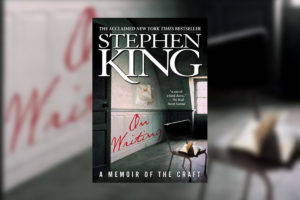
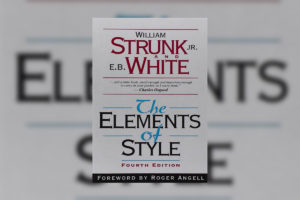
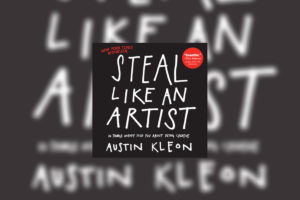
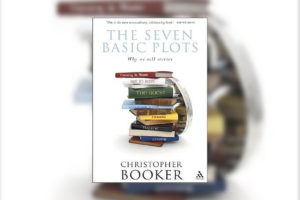
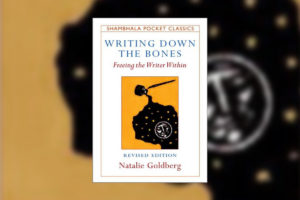
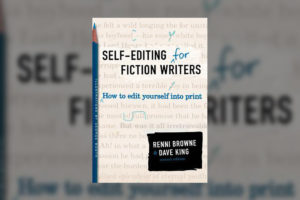
Thanks for the list. I also found ‘self-editing for writers’ by Browne and King very useful.
Thanks for the suggestion – an incredibly useful book. Have added it to the list!